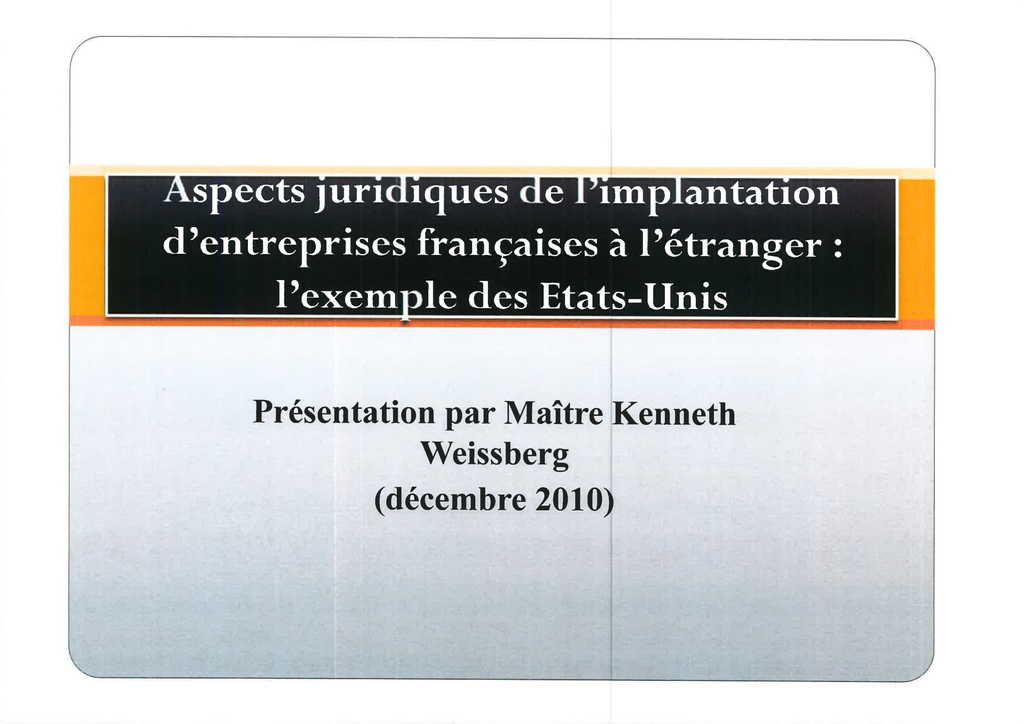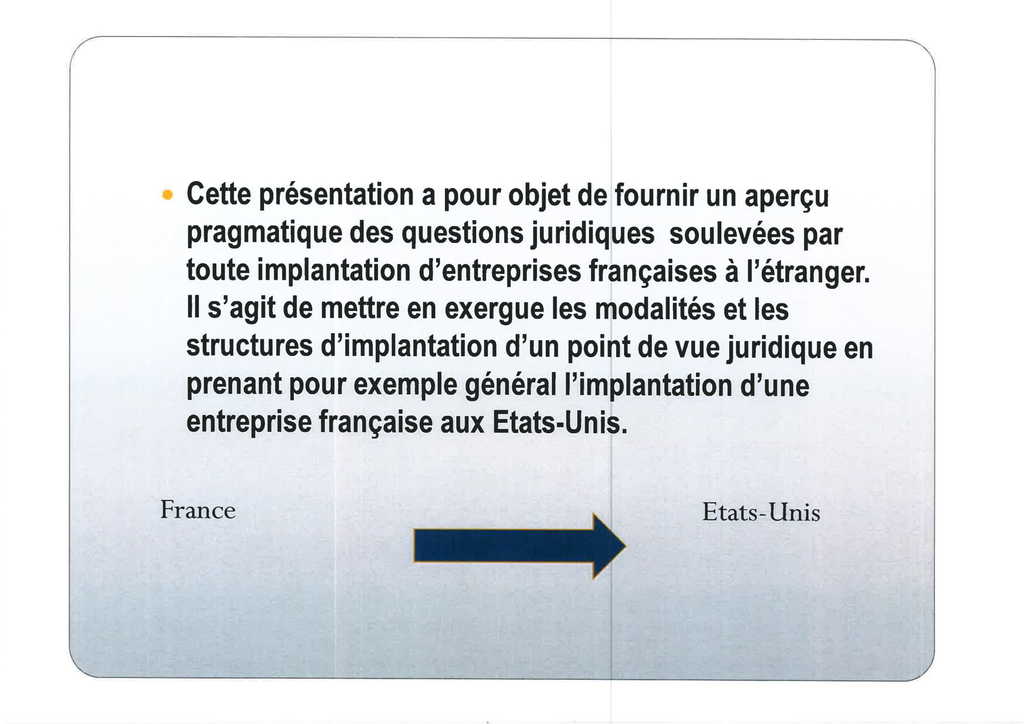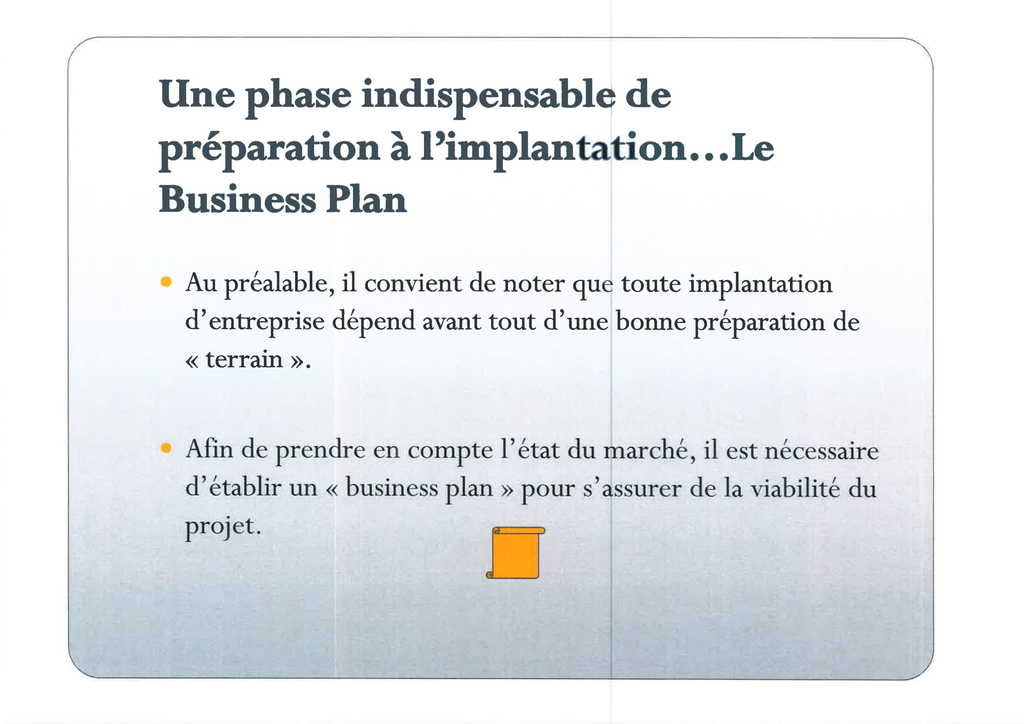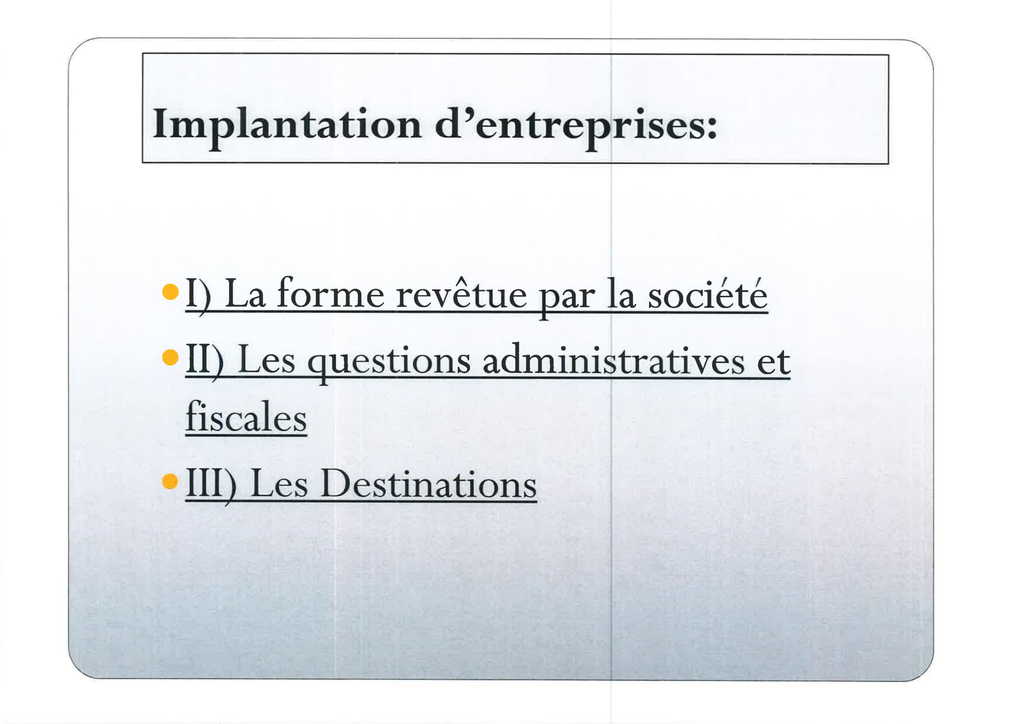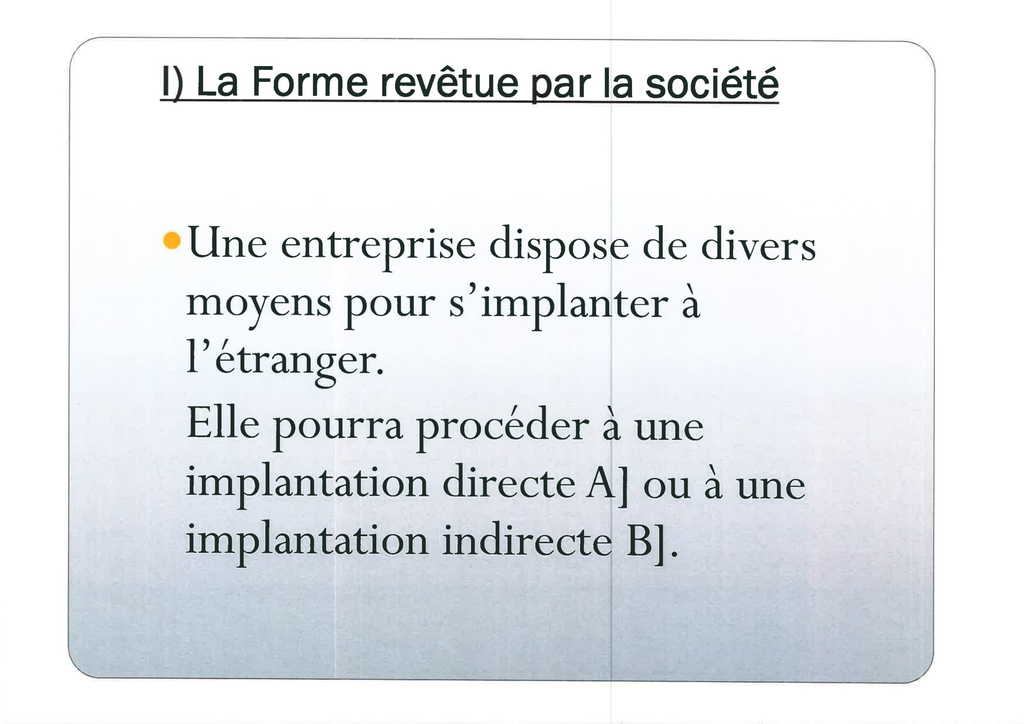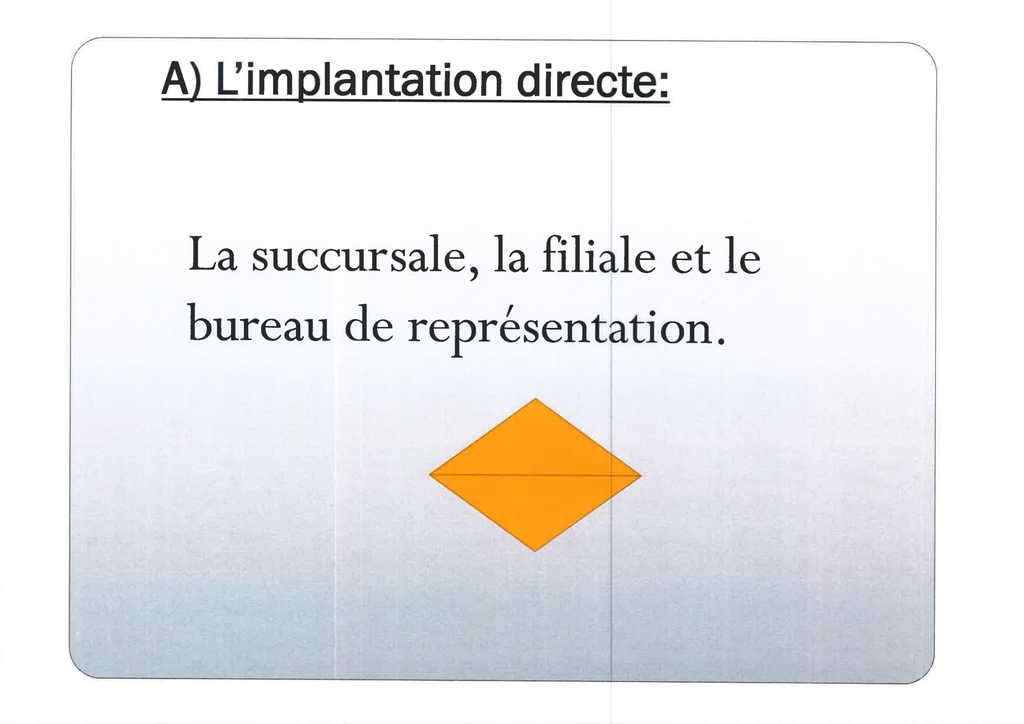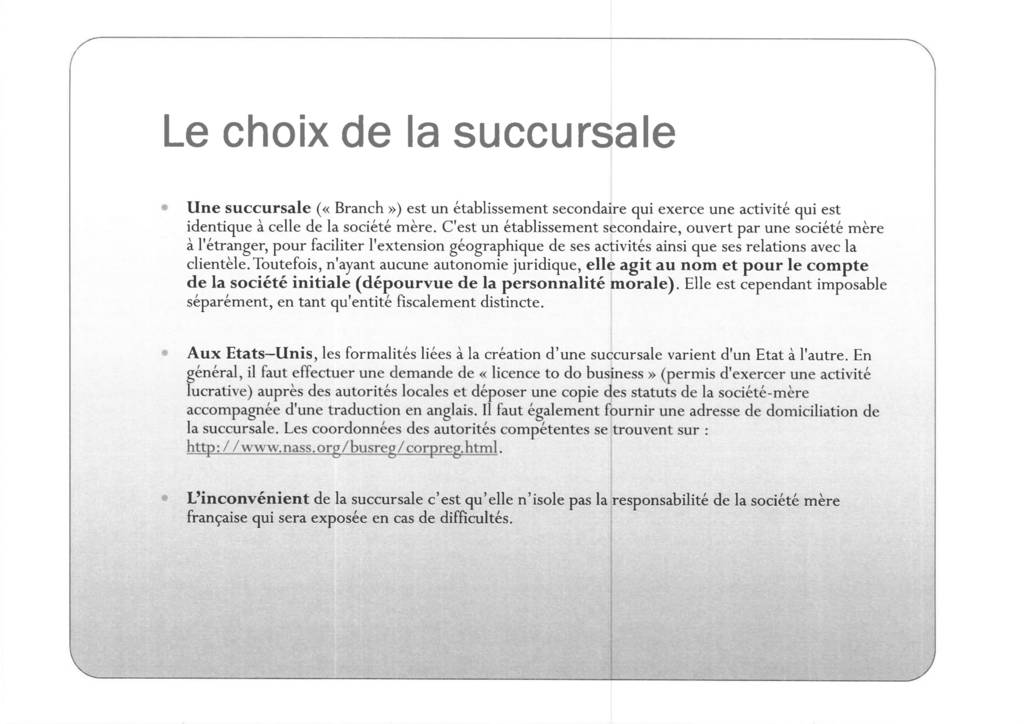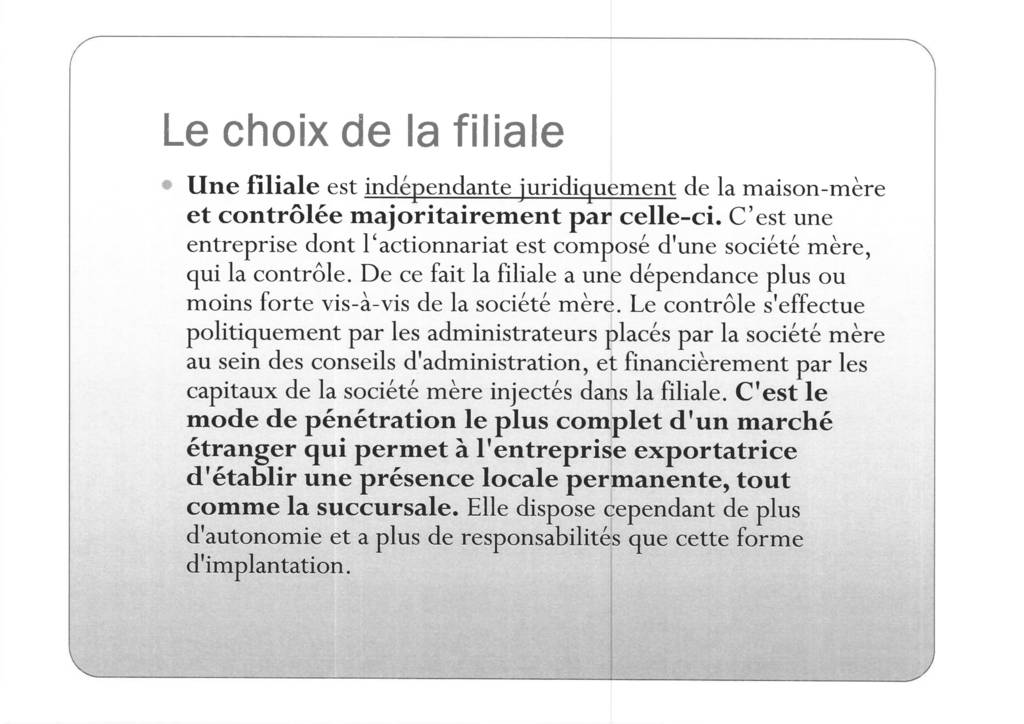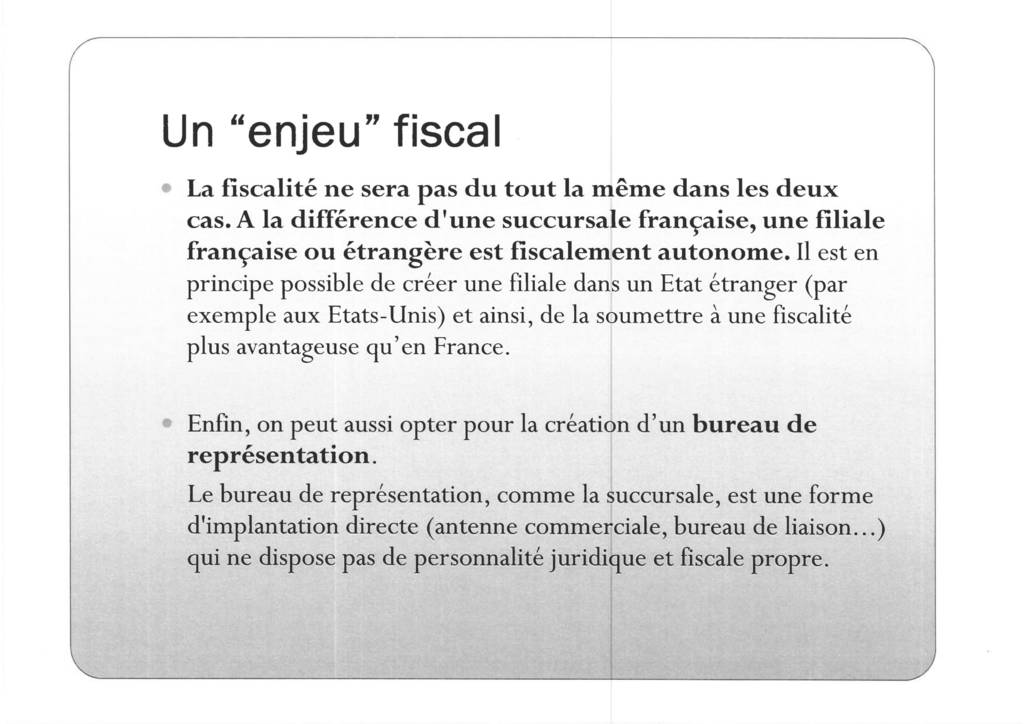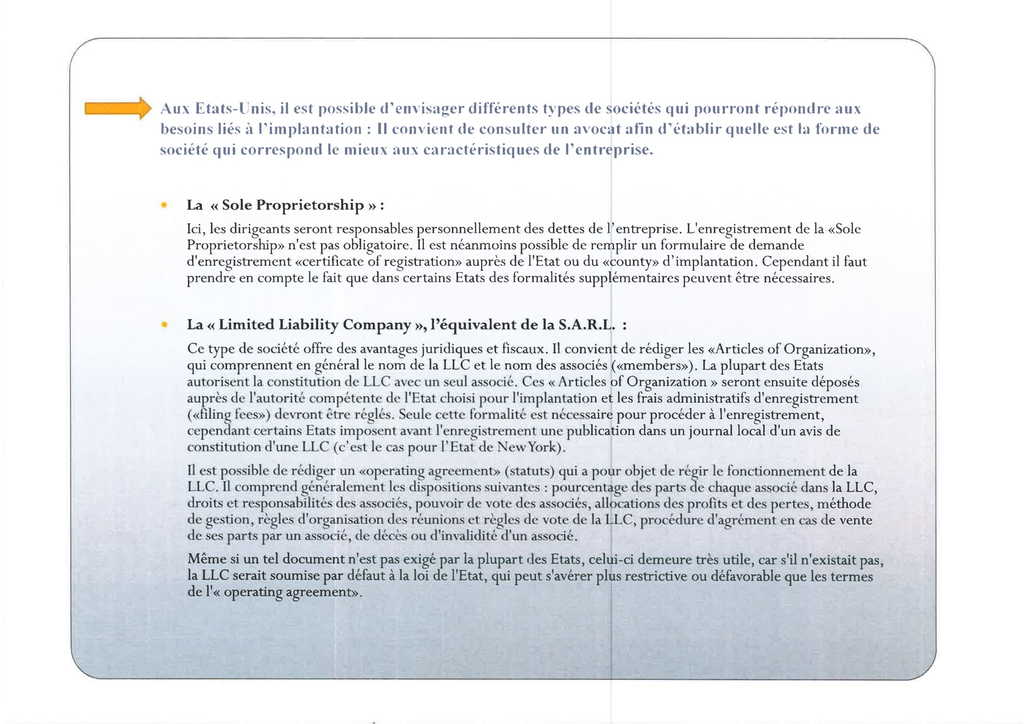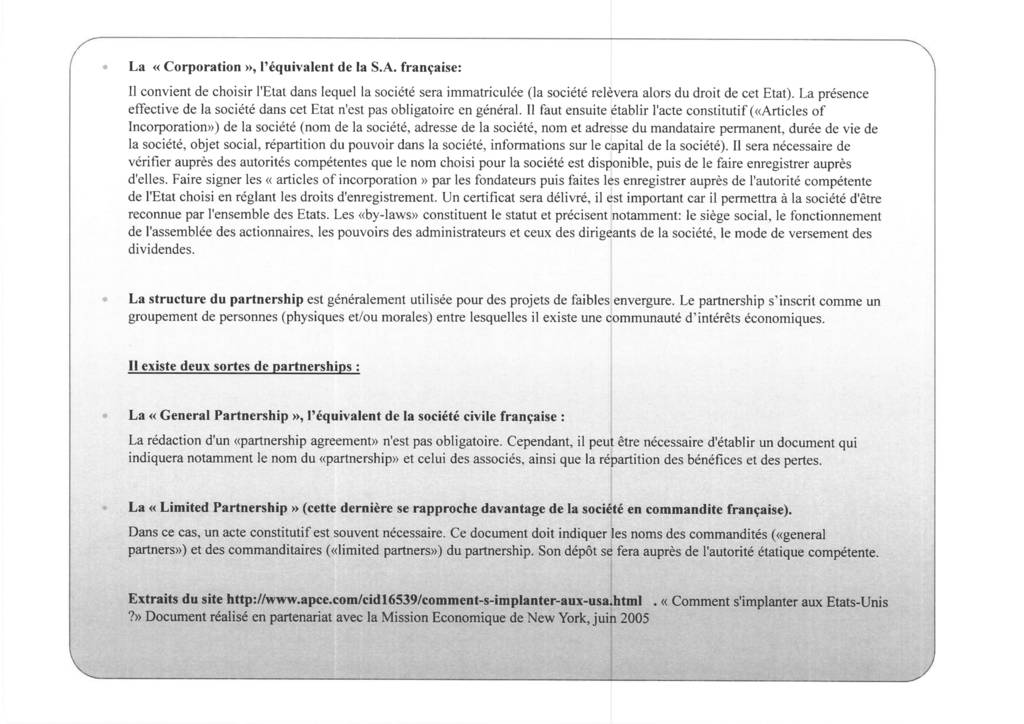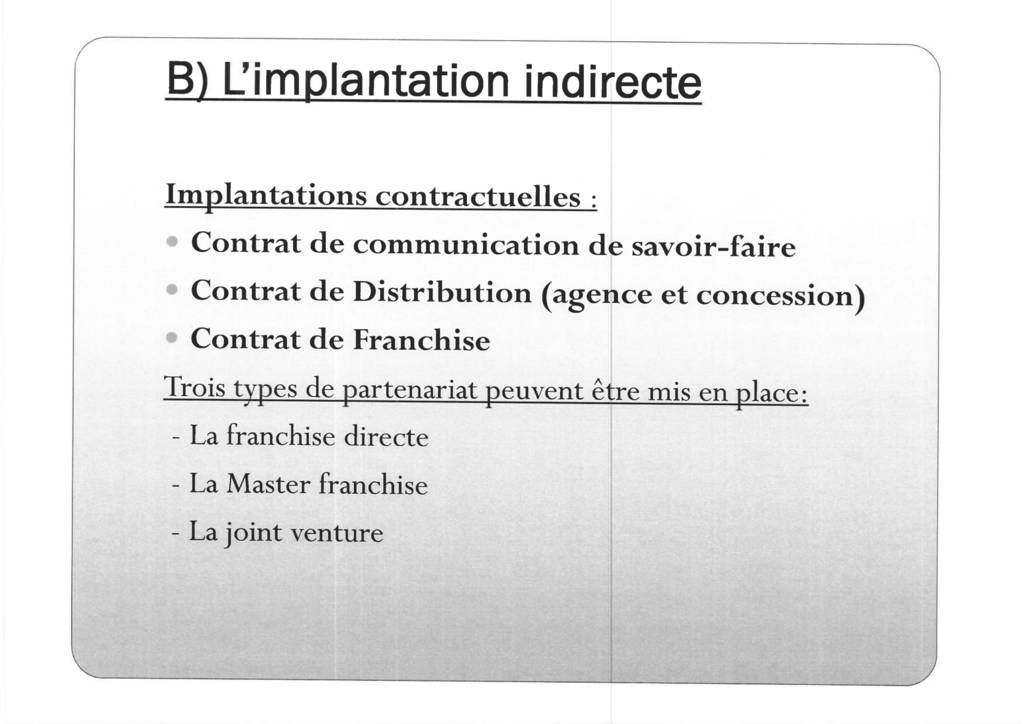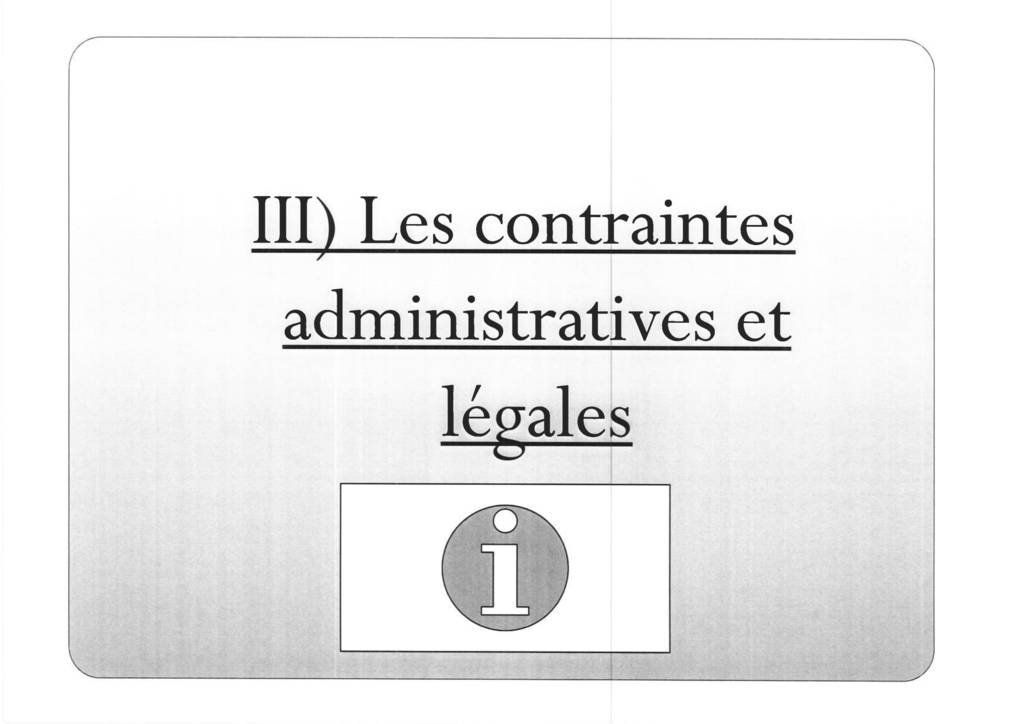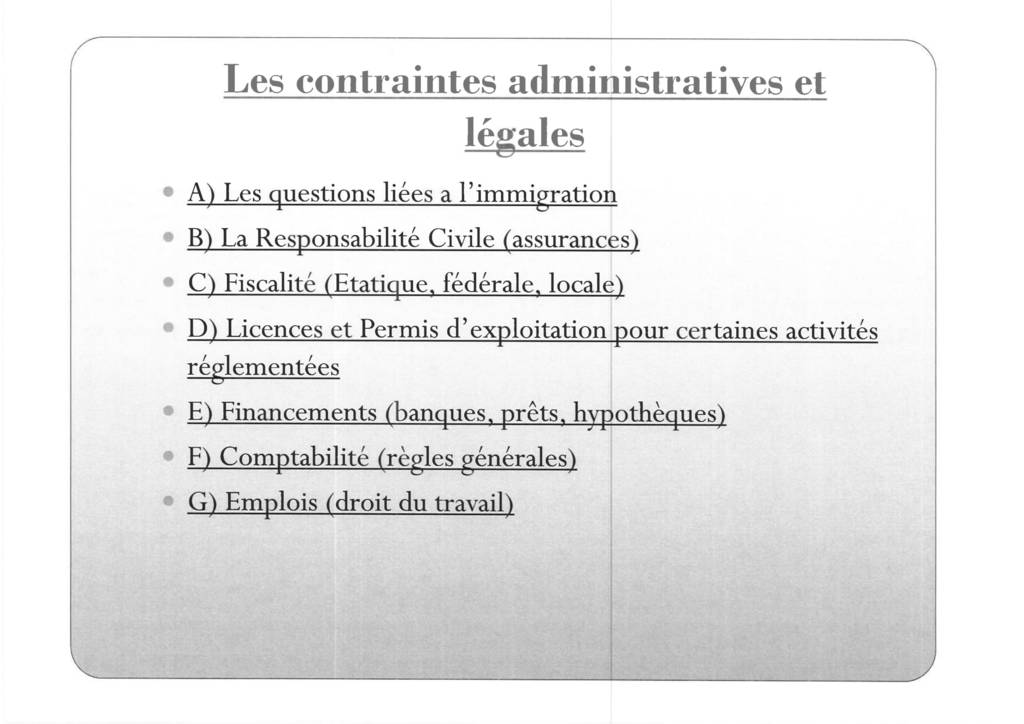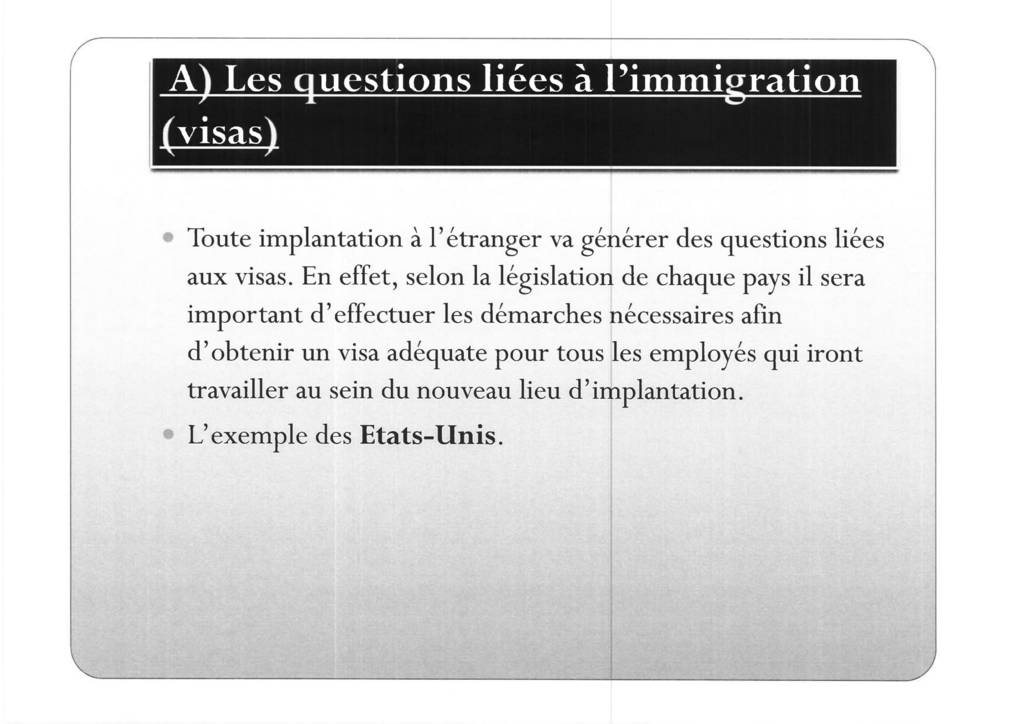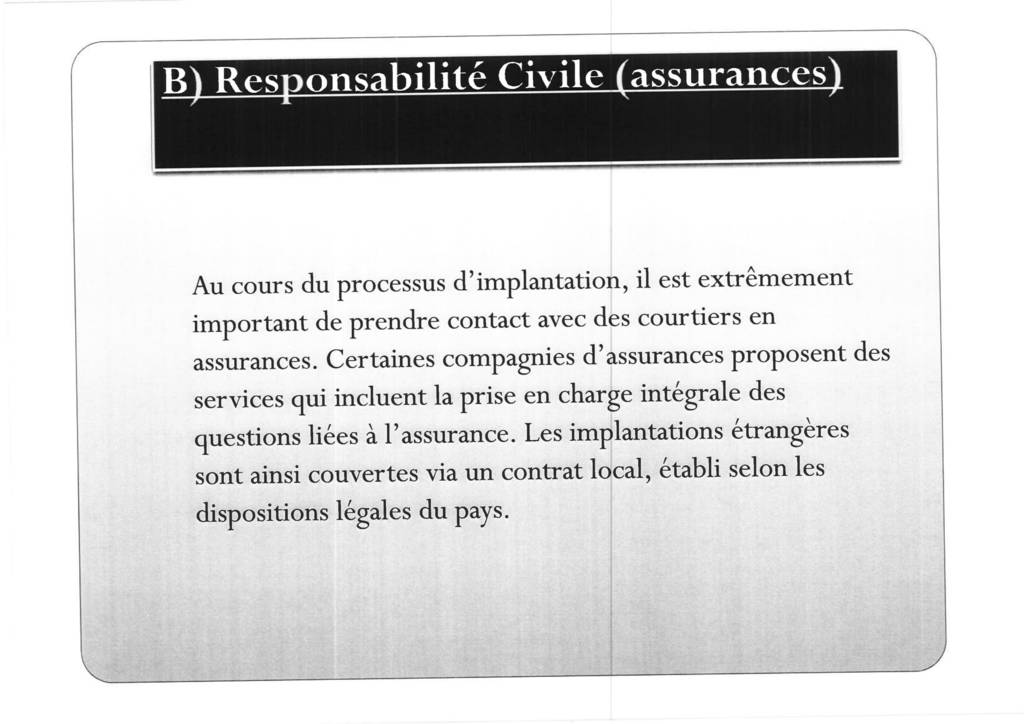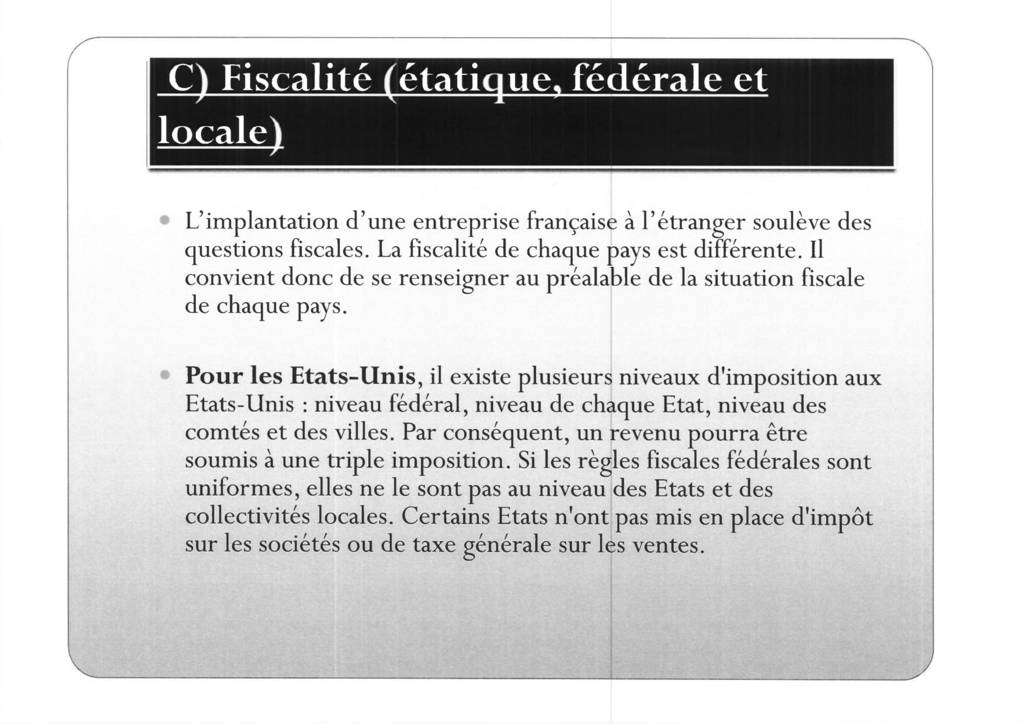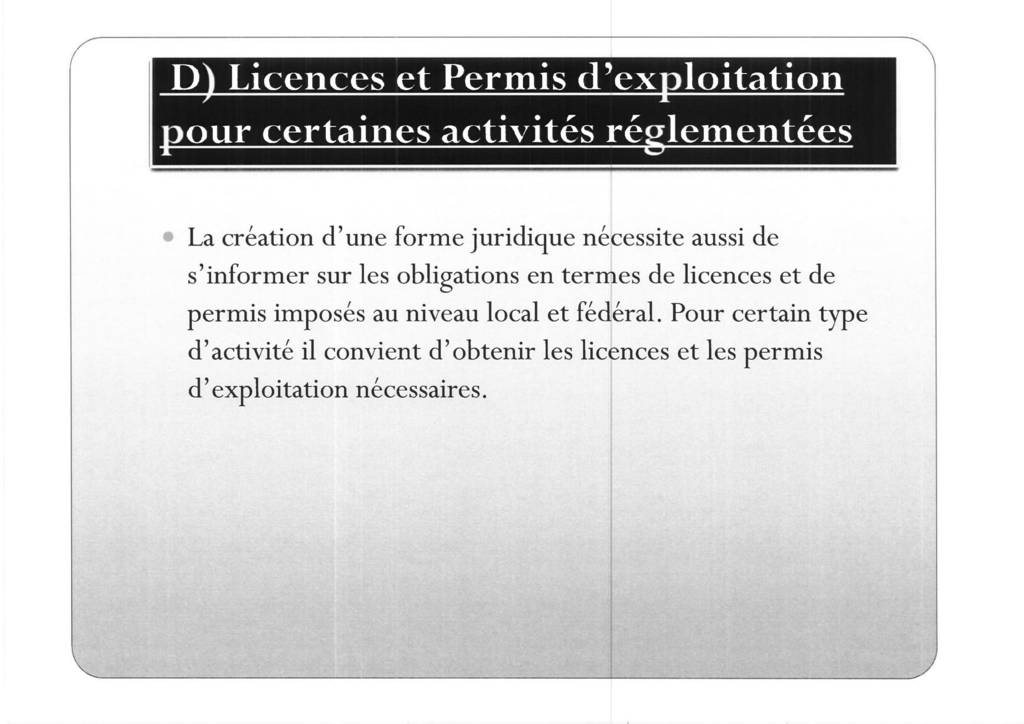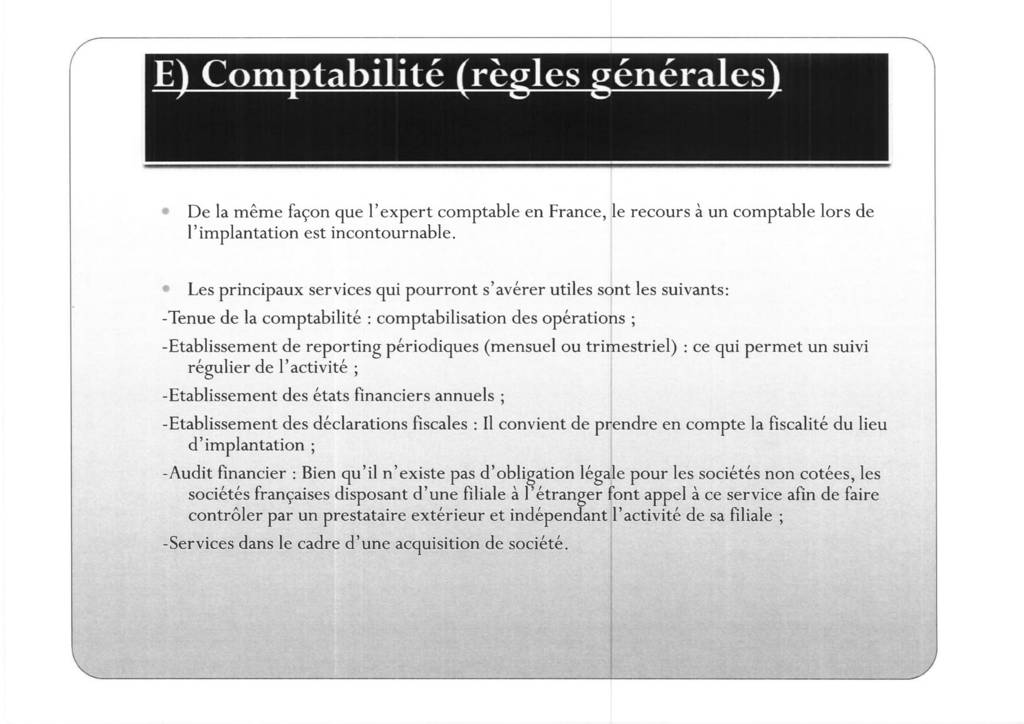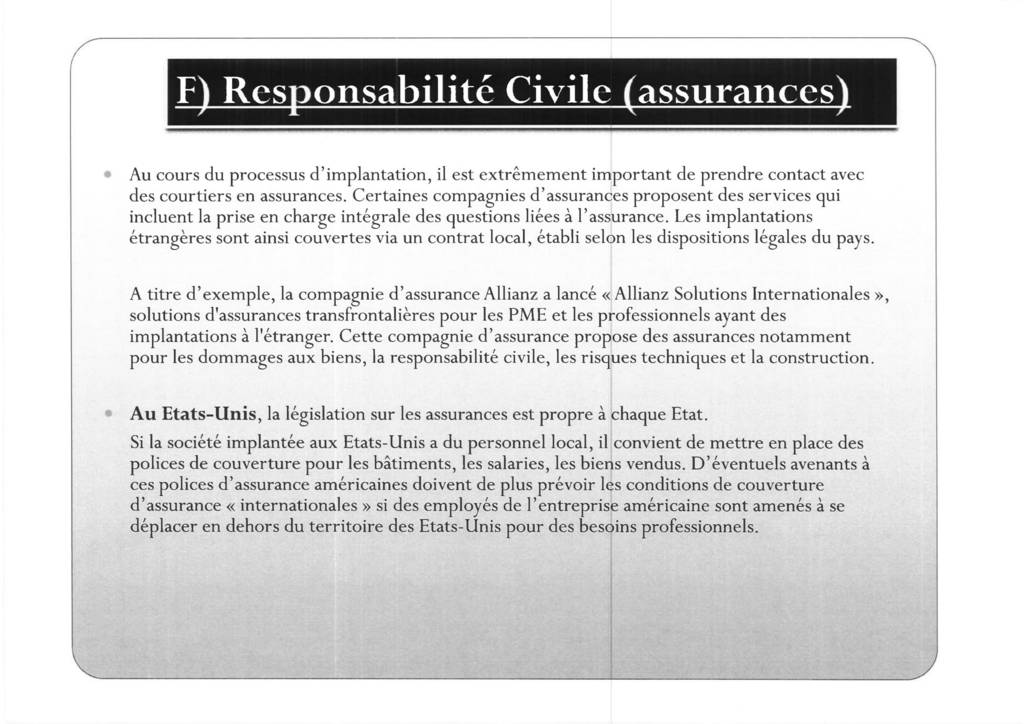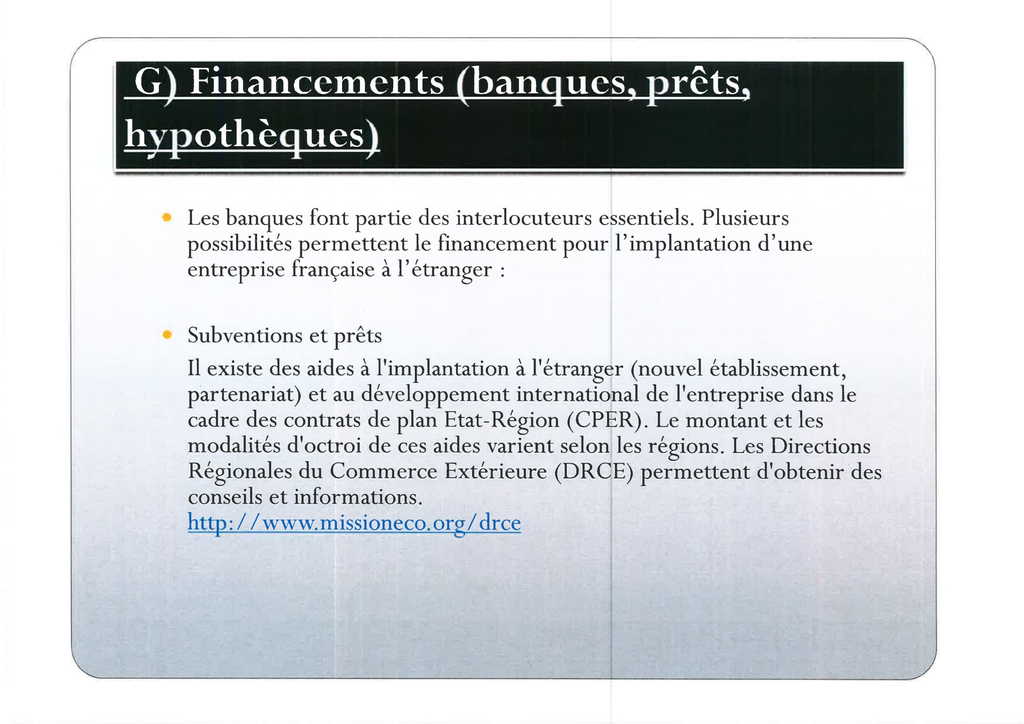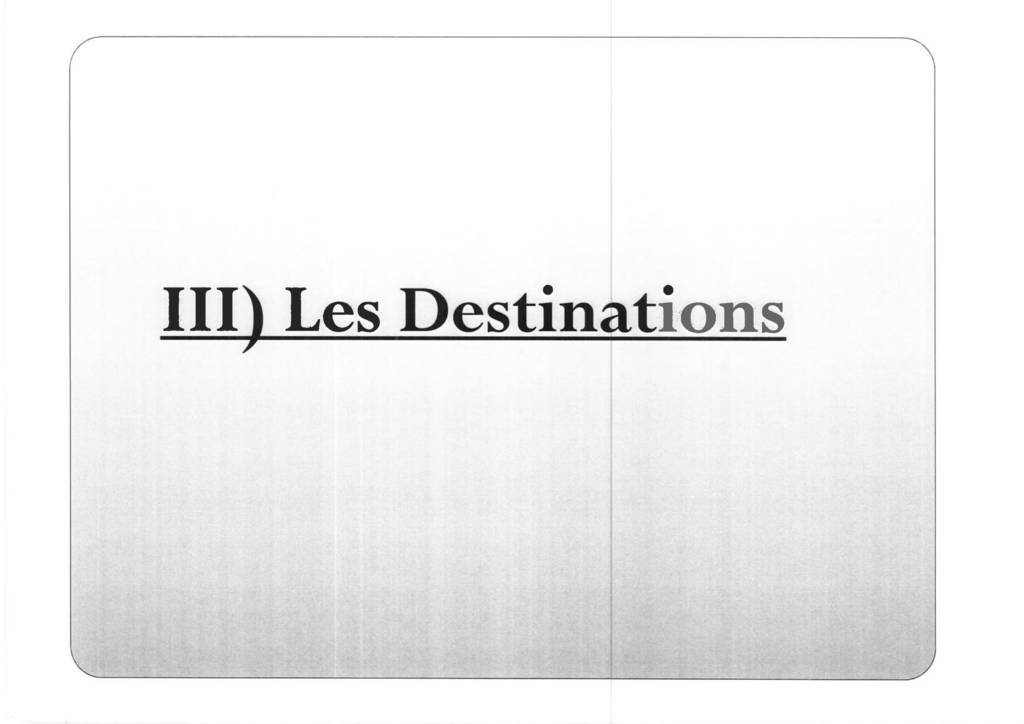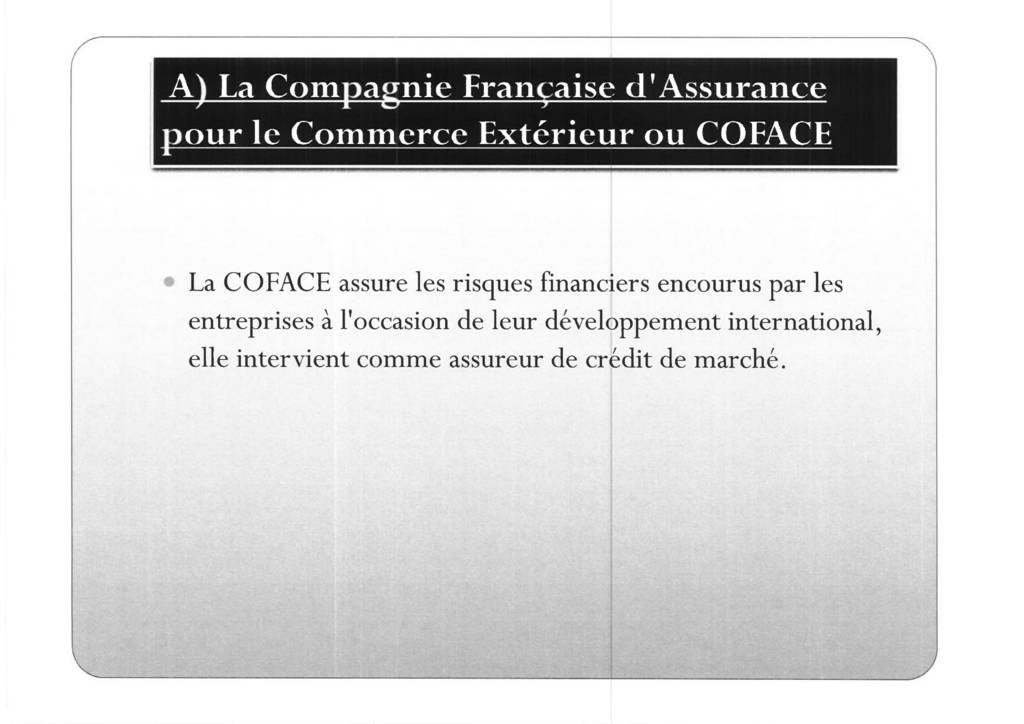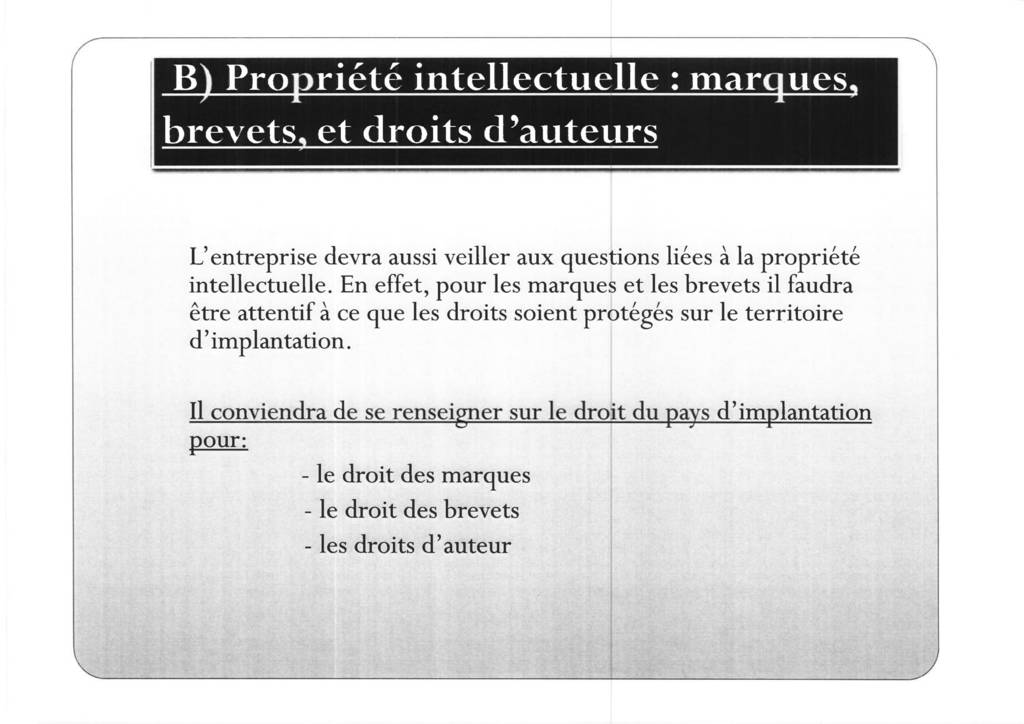Introduction: The rule of law in 2011
Some critics of the nationalist provisions of our civil law spread the rumor that the privilege of jurisdiction under articles 14 and 15 of the Civil Code has fallen into disuse and that it is no longer part of positive law.
However, it is not.
Prieur jurisprudence
- only qualifies this exclusive title of competence into optional competence.
The privilege of jurisdiction remains effective in extra-community relations as can be seen in a recent judgment of the Paris Court of Appeal of February 3, 2011 (1).
- The Court retains the jurisdiction of the French courts solely on the basis of article 14 of the Civil Code to know of an action brought against an American company for the purpose of paying damages due to the abusive proceedings initiated in the United States (2).
According to the Court, the fact that a French party defends itself before the American court does not constitute a waiver of the privilege of jurisdiction of article 14 of the Civil Code.
However, as a precaution, the French defendant who intends to resist the execution
of a decision made against him in the USA will be well advised not to submit without
reservations to an American investigation procedure.
The French exequatur procedure differs according to whether one is in the presence of a common law exequatur, that is to say outside any international convention or a simplified exequatur on request governed by the right of the European Union.
In the ordinary law procedure, articles 14 and 15 of the Civil Code constitute an effective defense.
This defense only exists at European level in civil and commercial matters which are excluded from the scope of Regulation No. 44-2001 known as Brussels I (3).
The American procedure does not experience the same obstacle to the enforcement of foreign judgments, because there is no equivalent to articles 14 and 15 of the Civil Code in American procedural law.
However, there is a defense which can be effective depending on the circumstances, based on the lack of reciprocity in the country from which the decision originates, the enforcement of which is required in the United States.
However, the argument could succeed before the American courts, that an American judgment pronounced against a French would not be honored in France, because of the defendant's refusal to submit to American jurisdiction by the invocation of his privilege of jurisdiction .
Consequently, in the absence of reciprocity, a French judgment condemning an American may not be exequatured in the United States.
This problem merits a comparison of the evolution of the two systems.
I. REMINDER OF THE RULES GOVERNING THE EXEQUATUR IN FRANCE
A) Exequatur of common law
Article 509 of the Code of Civil Procedure lays down the principle of the character
enforceable in France of foreign decisions subject to compliance with the rules
French laws.
It is a principle that the judge of the exequatur is never a judge of the merits, he therefore
not intended to retry the facts which gave rise to the judgment.
Since the Cornelissen case law (4), which restricts the conditions laid down by the previous case law (5), he must only ensure that:
- the international jurisdiction of the foreign judge who rendered the decision,
- the regularity of the procedure followed before the foreign jurisdiction but only in relation to French international public order and respect for the rights of the defense,
- the absence of any fraud under French law.
The exequatur judge may make a partial or total exequatur of the judgment submitted to him.
A party may also request the French judge to find the impossibility of the possible enforcement of a foreign judgment in France for the breach of one of these criteria.
The interest consists in retaining the competence of the French judge, by avoiding the obstacles of the lis pendens and the authority of the thing judged by a foreign court.
Furthermore, the French defendant can rely on Articles 14 and 15 of the Civil Code, to oppose the enforcement of the foreign judgment, provided that he has not given up raising this plea, by appearing voluntarily in the foreign proceedings.
B) Exequatur within the European Union
In the presence of a request for the enforcement of a judgment emanating from a court of a Member State of the European Union, it is the Brussels I Regulation, replacing the Brussels and Lugano Conventions, which applies for civil and commercial matters.
Article 3 rules out the application of articles 14 and 15 of the Civil Code (for France or equivalent abroad) between nationals of the signatory states.
Nevertheless, the privilege of jurisdiction is still relevant in its matters not covered by the Regulation (fiscal, customs and administrative matters) and those excluded from its scope, namely:
- the status and capacity of natural persons, matrimonial property regimes, wills and successions;
- bankruptcies, composition and other similar collective proceedings;
- social security matters;
- arbitral awards.
For these matters applies the common law of exequatur, with the exception of
arbitral awards that follow a specific procedure.
So that the exequatur procedure is successful and therefore that the judgment for which the exequatur is requested can be executed in the desired country, it is necessary to ensure that the following conditions are met upon the introduction of the main procedure leading to upon obtaining judgment:
- Scrupulously respect the public order of the State in which the judgment is sought as well as the public order of the State where the enforcement will be sought;
- Have the defendant initiate the proceeding, regularly and in good time and keep the proof in the file;
- Ensure that the judgment is not irreconcilable with a decision rendered between the same parties in the State in which enforcement is sought or in another State in a dispute having the same object and the same cause;
- Ensure that the defendant, in civil and bankruptcy matters, who does not fall within the scope of the Regulation, defended himself without raising the privilege of jurisdiction.
Once verified that these conditions are met, it is necessary to follow the simplified procedure of articles 38 and following of the Brussels I Regulation:
- The request for exequatur must be made on request presented to the President of the Court of First Instance of the domicile of the party against whom the execution is requested, and failing this the place of execution which must be indicated in the request.
- The President rules promptly, without observations being able to be presented by the party against whom enforcement is requested.
- A decision is rendered on motion subject to appeal. The procedure then becomes contradictory and the decision of the Court of Appeal is likely to be appealed in cassation.
II. THE EXECUTIVE OF A FRENCH JUDGMENT IN THE UNITED STATES
There is no convention on the enforcement of judgments between France and the United States.
However, the American jurisdictions easily grant exequatur to French judgments especially when it is a judgment bearing condemnation on sums of money.
Indeed, the Uniform Foreign Money Judgments Recognition Act (6) was adopted in many American states, and even in those which did not adopt it, the courts generally apply this procedure. simplified exequatur similar to that of the Brussels I Regulation.
The simplified exequatur (domestication of foreign judgment) procedure consists of registering the foreign judgment with the registry of the competent court and the notice of registration is served on the debtor, who then has a relatively short time limit for filing an opposition. In this case, a contradictory procedure opens where the judge verifies the following regularity conditions:
- The foreign judgment is final.
- The judgment was rendered by an impartial court or according to the requirements of the American Constitution for safeguarding individual freedoms (due process of law), it being presumed that all the requirements laid down by the constitution are not necessarily taken up by case law .
Thus the argument that the foreign lawsuit was not subjected to a jury, whereas the American Constitution makes a fundamental right of it, cannot succeed (7).
- The foreign court had jurisdiction over the defendant.
- The defendant was informed of the foreign judgment proceedings within a reasonable time to enable him to be able to defend himself.
- The judgment was not obtained by fraud.
- The subject-matter of the legal action or of the claim for compensation for the damage on which the judgment is based are in accordance with the public policy of the State.
- The judgment does not conflict with any other final judgment.
- The foreign court which rendered the judgment would recognize a similar decision rendered in the state where enforcement is sought.
In practice, it will be necessary to produce in support of the factum in demand.
of exequatur, a customary certificate (affidavit) issued by a lawyer for the
jurisdiction of the country which rendered the decision to be enforced, being able to attest that the said
validity conditions are met.
This last point of reciprocity was put down by the United States Supreme Court as one of the principles of "Comity" (8).
This is no longer required in most states, so it is often easier for a successful litigant to have a judgment obtained in his country recognized in the United States, than on the contrary for a party. winner of having a judgment obtained in the United States enforced abroad.
However, there remains the problem mentioned above of non-reciprocity with regard to articles 14 and 15 of the French Civil Code.
It should be noted that French correctional judgments containing civil convictions against French citizens who have left to settle in the United States are regularly enforced in several American states. (9)
***
- Cass. 1st civ., May 23, 2006, Prieur c / de Montenach: D. 2006, Chron. p.1846, note B. Audit.
- CA Paris (1er ch.) February 3, 2011, SAS Surgiview c / Orthotec LLC.
- Council Regulation No. 44-2001 dated December 22, 2000 concerning jurisdiction, recognition and enforcement of decisions in civil and commercial matters (OJ L 12, 16.1.2001, p. 1), which replaces the Conventions from Brussels and Lugano.
- Cass, civ, 1st, February 20, 2007 N ° 05-14.082, Cornelissen c / Sté Avianca INC. The Court abandoned the requirement of the application of the competent law according to French conflict rules to authorize exequatur.
- Munzer judgment (Civ 1st, January 7, 1964 - JCP 1964 II 13590); Bachir stop, Cass. Civ. 1st October 4, 1967.
- The Uniform Foreign Money Judgments Recognition Act has been approved by an Annual Conference meeting in its seventy-first year Monterey, California July 30 - August 4, 1962.
- V. the judgment of the Supreme Court Hilton v / GUYOT of 1885 recognizing the validity with regard to the American rules of public order, of a judgment emanating from the Commercial Court of the Seine in matters of bankruptcy.
- "Comity" is the deference that judges must show to decisions rendered by another court. It is courtesy, or even mutual recognition of administrative, legislative and judicial decisions. Dictionary of economic and legal English, Anne Deysine, Pocket Book, 1996 11
- Gibsonia Invest v / Alexandre Byron Exarcos. Circuit Court of the 11th Judicial Circuit, Miami, Florida, March 30th, 1999.
